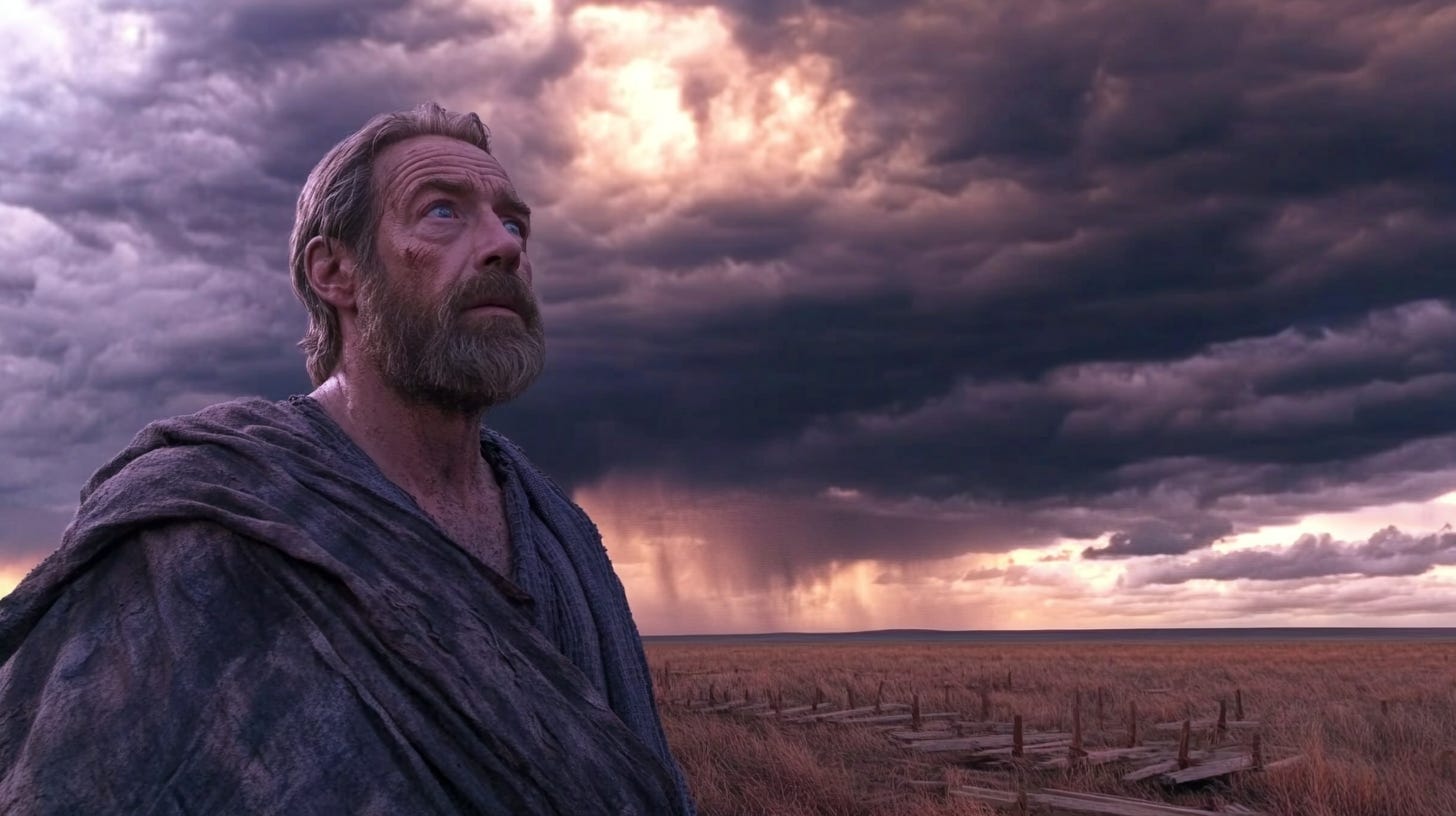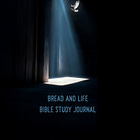Week 4: The Sons of God, Daughters of Men, and the Nephilim
Angelic Rebellion and Its Corruption of Humanity
Week 4: The Sons of God, Daughters of Men, and the Nephilim
Theme: God’s unwavering faithfulness and redemptive plan amid human and spiritual rebellion, as seen in the contrast between the faithfulness of figures like Enoch and Noah and the corruption caused by sin.
Objectives
By the end of this lesson, participants will:
Understand the genealogical context of Genesis 5 and the spiritual rebellion described in Genesis 6:1-4.
Explore the impact of both human and angelic rebellion on creation and humanity.
Reflect on God’s faithfulness and ultimate plan for redemption amid corruption.
Scripture Focus
Genesis 5: Genealogy of Adam and the example of Enoch.
Genesis 6:1-4: The sons of God, daughters of men, and the Nephilim.

Introduction
The passages in Genesis 5 and 6 are a profound and mysterious window into the state of the world following humanity’s fall. While Genesis 5 reveals the enduring image of God through Adam’s genealogy and the unique relationship Enoch had with the Creator, Genesis 6 shifts to a narrative of escalating rebellion. Here, the "sons of God" initiate a spiritual corruption that leads to a deeper fall of creation, symbolized by the Nephilim. This study not only illuminates the nature of sin's distortion but also reaffirms God’s unwavering commitment to His creation through His faithfulness to humanity.
Genealogy and Faithfulness: The Legacy of Enoch (Genesis 5)
Genesis 5 serves as a bridge between the initial chapters of humanity’s creation and the great corruption that unfolds in Genesis 6. The genealogy reflects the progression of life under the curse of death, with each generation marked by mortality yet carrying the image of God. This chapter highlights the resilience of life through Adam’s descendants despite the brokenness caused by sin.
Amid this lineage, Enoch emerges as a pivotal figure. In Genesis 5:22-24, we read that Enoch "walked with God, and he was not, for God took him." This extraordinary statement sets Enoch apart as a man whose life epitomized deep fellowship with the Creator. The phrase "walked with God" conveys more than mere obedience; it portrays a relational intimacy and alignment with God’s heart, suggesting a life surrendered to divine purposes. Enoch’s translation into God’s presence without experiencing death prefigures the hope of eternal life and underscores the possibility of experiencing God’s nearness even in a world steeped in corruption.
This account challenges us to emulate Enoch’s example by seeking daily communion with God. Faithfulness is not about rigid adherence to rules but about cultivating a life that reflects the Creator’s character through trust, worship, and love. Enoch’s life offers a vision of what it means to remain steadfast in a broken world, trusting that God delights in drawing near to those who walk closely with Him.

The Sons of God and Daughters of Men (Genesis 6:1-2)
This passage introduces one of the Bible’s most mysterious and debated episodes. Genesis 6:1-2 describes how the "sons of God" saw that the daughters of men were beautiful and took them as wives. The term "sons of God" likely refers to angelic beings, as supported by parallel passages such as Job 1:6, where the same phrase denotes celestial beings presenting themselves before God.

These rebellious angels transgressed their divine boundaries by engaging in relationships with human women. Their actions exemplify both defiance against God’s order and an attempt to corrupt humanity’s role as image-bearers. This spiritual rebellion intertwined with human life, highlighting the interconnectedness of the physical and spiritual realms.
The consequences of this rebellion were far-reaching. It led to the distortion of God’s design for marriage and the propagation of sin, showcasing how unchecked rebellion escalates into widespread corruption. In a world where rebellion against God is normalized, this passage challenges us to remain vigilant in safeguarding God’s intentions for human relationships and to resist influences that lead us astray from His purposes.

The Nephilim: Symbols of Corruption (Genesis 6:3-4)
The offspring of the unholy union between the "sons of God" and the daughters of men were the Nephilim, described as "mighty men who were of old, the men of renown" in Genesis 6:4. The term "Nephilim" is often translated as "giants," though it also conveys a sense of fallen ones or those of extraordinary stature and strength. These beings symbolize the extent to which creation had been corrupted by the merging of the spiritual and human realms.
Their presence in the narrative underscores the deepening consequences of sin. The Nephilim embody humanity’s entanglement with rebellion, as they were both a product and a perpetuation of the chaos introduced by the "sons of God." Their existence reflects a world in moral and spiritual freefall, where humanity’s God-given role to steward creation was undermined by the pervasive influence of sin.
This passage serves as a sobering reminder of the destructive power of rebellion. It calls us to remain rooted in God’s truth, recognizing that sin’s reach extends beyond individual actions to impact entire communities and generations. Yet, even amid such corruption, God’s justice and mercy shine. By limiting human lifespans (Genesis 6:3), God demonstrates His grace in restraining the spread of evil, offering humanity the opportunity to turn back to Him.

God’s Faithfulness Amid Rebellion
Despite the pervasive corruption depicted in Genesis 6, God’s faithfulness remains steadfast. The narrative transitions to introduce Noah, described as "a righteous man, blameless in his generation" who "walked with God" (Genesis 6:9). This marks the beginning of God’s redemptive work to preserve humanity and His creation from total destruction.
God’s decision to intervene through Noah reflects His desire to uphold His covenant with creation. Though humanity and the spiritual realm had spiraled into rebellion, God’s plan for restoration was already in motion. This divine initiative demonstrates that even when the world seems beyond redemption, God’s purposes cannot be thwarted.
For believers today, this narrative offers hope and assurance. It reminds us that God’s sovereignty and faithfulness endure in the face of chaos. Like Noah, we are called to partner with God in His work of restoration, living lives that reflect His righteousness and trusting in His redemptive plan.
Exploring Key Themes
Human and Angelic Rebellion: Sin distorts and corrupts not only humanity but the created order, emphasizing the cosmic scope of rebellion.
Faithfulness in Brokenness: The example of Enoch highlights the possibility of intimacy with God even in a fallen world.
God’s Redemptive Plan: Even as sin escalates, God remains active in preserving His creation and preparing for its ultimate restoration.
The Nature of Sin: Sin’s consequences extend beyond the individual, impacting families, communities, and even spiritual realities.
Reflection and Response
Reflection Questions:
What does Enoch’s example teach us about walking with God in our daily lives?
How does the story of the "sons of God" deepen our understanding of the spiritual realm and its connection to humanity?
What parallels can you see between the corruption in Genesis 6 and the challenges we face in today’s world?
Journaling Prompt:
Write about an area of your life where you feel called to resist compromise. How can you align yourself more closely with God’s purposes in that area?Group Activity:
Create a timeline comparing Enoch’s faithfulness to the rebellion of the "sons of God" and the Nephilim. Discuss how these contrasting narratives inform our understanding of God’s faithfulness and human responsibility.
Additional Resources
Book: The Unseen Realm by Michael Heiser, available on Amazon, for insights into Genesis 6 and the spiritual realm.
Video: BibleProject’s Spiritual Beings series for an accessible overview of angelic rebellion and its implications.
Song: “Faithful to the End” by Bethel Music, reflecting on God’s enduring commitment to His creation. This song emphasizes God’s unwavering faithfulness throughout history, making it a fitting companion to this study. As the genealogy in Genesis 5 demonstrates God's continued presence through Enoch’s faithfulness, and Genesis 6 reveals His intervention amid human and angelic rebellion, the song reminds us of His steadfast nature. Watch the official lyric video for a deeper reflection on His enduring commitment to humanity.
Key Takeaways
Intimacy with God, as demonstrated by Enoch, is possible even in a corrupted world.
Rebellion—both human and angelic—brings profound consequences, yet God’s sovereignty remains unshaken.
God’s faithfulness ensures that His redemptive plan continues, no matter how deep the corruption.
Conclusion
Genesis 5-6:1-4 reminds us that even in the darkest chapters of history, God’s light shines through. The genealogy in Genesis 5 reflects God’s enduring presence despite humanity’s brokenness. Figures like Enoch, who “walked with God” (Genesis 5:22-24), remind us that deep fellowship with the Creator is possible, even in a sinful world. His life is a testament to faith rooted in trust and obedience, paving the way for divine intimacy and ultimate hope.
Genesis 6:1-4 transitions to a troubling narrative, where the "sons of God" rebel against divine boundaries by taking human women as wives. This defiance leads to the rise of the Nephilim (Genesis 6:4), emblematic of the compounding effects of sin when spiritual rebellion intersects with humanity. These verses warn of how sin distorts God’s design for creation. Yet, amid such chaos, God’s faithfulness prevails as He begins to act through Noah’s righteousness (Genesis 6:9).
These passages together showcase the grave consequences of rebellion but also reveal the hope that comes from walking faithfully with God. May we, like Enoch, seek God wholeheartedly and trust in His unwavering plan to restore His creation.



